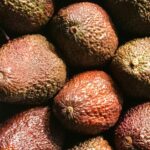U.S. authorities propose market access for Malaysian tropical fruits

The Animal and Plant Health Inspection Service (APHIS) has proposed amending regulations to allow imports of Malaysian pineapples, starfruit and jackfruit into the continental United States. 
After identifying a range of potential associated pests and preparing a risk management document (RMD), APHIS has determined that all three of these fruits would need to be irradiated as a condition of entry, and be sent in commercial consignments.
However, irradiation would not mitigate risks for all pests concerned, and APHIS has prepared commodity-specific requirements for each fruit.
APHIS will be accepting comments until July 8.
Jackfruit
The proposed treatment schedule would only neutralize 23 of the 24 pests that follow the pathway of Malaysian jackfruit, with continued risk from phytopathogenic fungus P. meadii. To address this, APHIS has set out several additional rules
The first of these is that if stems are present they must not be more than 5cm in length, while the second rule is that the fruit must come from an orchard treated with an approved APHIS fungicide during the growing season with inspections from Malaysia's national plant protection organization (NPPO).
The third rule, which applies to all products, requires each consignment to be accompanied by a phytosanitary certificate issued by the NPPO.
Pineapples
APHIS said the proposed irradiation treatment would only neutralize 15 of the 22 pests associated with Malaysian pineapples. As is the case with jackfruit, the fruit will have to come from an orchard sprayed with APHIS-approved fungicides.
"Alternatively, the pineapple would have to be treated after harvest with a fungicidal dip approved by APHIS for these fungi. A number of broad-spectrum fungicides for pineapples have demonstrated efficacy in killing these five fungi," APHIS said in a document posted on the Federal Register.
"Proposed paragraph (c)(2) would require the pineapple to be sprayed after harvest but prior to packing with water from a high-pressure nozzle or with compressed air so that all A. fulica and E. orientalis are removed from the surface of the pineapple."
Pineapple consignment certificates from the NPPO will also need an additional declaration that one of the proposed mitigation methods in addition to irradiation has been undertaken, with inspections showing the fruit is free of the pests concerned.
Starfruit
The authority found its proposed treatment would only neutralize 11 of the 14 pests that use Malaysian starfruit as a pathway. Under the arrangement, each consignment of starfruit would have to be inspected by the NPPO of Malaysia using a sampling method agreed upon by APHIS.
Samples would need to be free of the phytopathogenic fungus P. averrhoae, which has symptoms that are easily detectable during visual inspection, such as sunken, black lesions and, in advanced stages, pycnidia, or flowering, spore-filled masses that erupt from the surface of the fruit.
"The fruit in the sample would then have to be cut open, inspected, and found free from pupae of Cryptophlebia spp."
The starfruit rules imply a similar certification process to the one mentioned above for pineapples, but regarding the starfruit-specific treatment and sampling requirements.














































